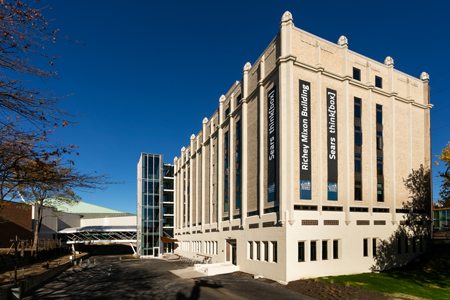Establishing an Innovative Space for Students
In an effort to establish a creative space for their students, Case Western Reserve University started the Sears think[box], an innovative and entrepreneurial space for students on campus and in the surrounding community. The Sears think[box] provides an environment where hands-on education, design, and product development intersect and become one focus.
Today, more 5,000 individuals use Sears think[box] every month who are drawn to the center’s 3D printers. Bringing ideas to life, students, faculty, alumni and community members use additive manufacturing technology to create everything from bracelets all the way to bone specimen replicas.
Enhancing Education & Supporting Companies
Located in a seven-story, 50,000 square foot facility, Sears think[box] is an excellent example of how 3D printing and other innovations greatly enhance the educational experience while also satisfying the needs of 21st-century employers. The Stratasys 3D printers on site allow users to rapidly prototype parts (and even entire assemblies) out of white ABS plastic.
Sears think[box] manages the processing and provides support to the high volume of users who visit the facility every day. “We provide the whole service,” said Malcolm Cooke, associate professor for Case School of Engineering in Cleveland. “Users submit their STL files to us online, we handle all of the pre- and post-processing, and then deliver the final product to them.”
“The printers have helped us broaden the scope of our projects coming through our center and provided much-added value for students as they develop their prototypes” — Malcolm Cooke, Associate Professor, Case Western Reserve University
With a plan of adding more 3D printers in Sears think[box]’s future, Cooke aims to provide students with as many combinations of materials as possible. “I’d like to provide students with as many different technologies and material choices as possible,” said Cooke. The university is equipping students with skills and team-building experience that today’s employers expect. “Most companies want technical skills and multidisciplinary team experience,” said Cooke. “Through Sears think[box], we’re able to promote the use of creativity, innovation, and entrepreneurship across campus. This, in turn, supports a wide range of inter-disciplinary exploration and activity.”.
